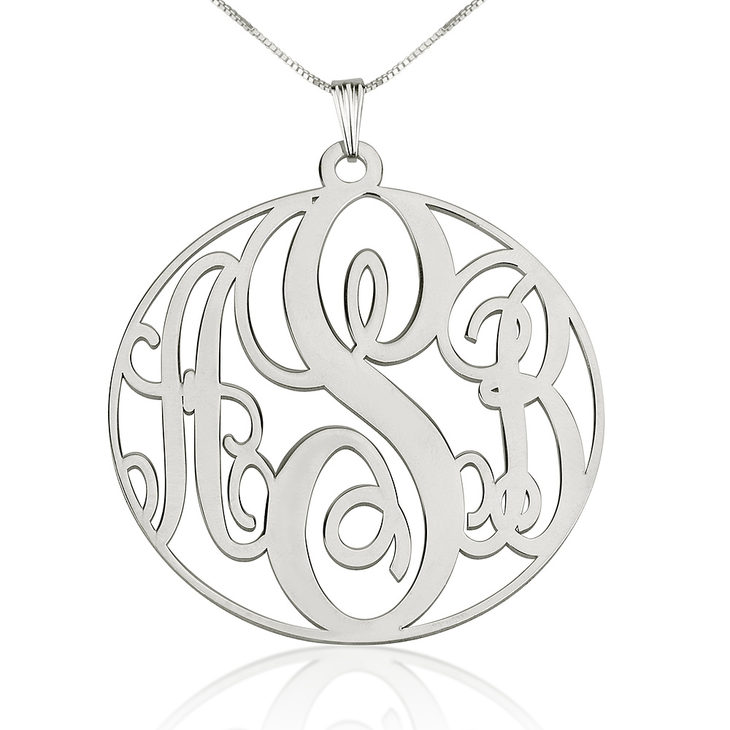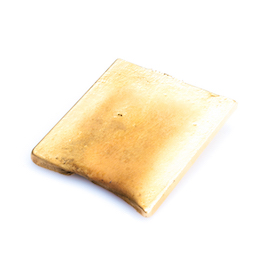Does Real Gold Tarnish?
Gold is one of the least reactive chemical elements. Gold alone or pure gold does not combine easily with oxygen so it stays shiny, it does not rust nor tarnish, again, that is pure gold.

Gold tarnishing is the slight corrosion of the gold surface and is evident as a dark discolouration of the gold item, also called a tarnish film. If you search online, some will say that real gold tarnishes while others will say that real gold does not tarnish. So we decided to write this blog to help provide information without the confusing answers or terms.
Gold is one of the least reactive chemical elements. Gold alone or pure gold does not combine easily with oxygen so it stays shiny, it does not rust nor tarnish, again, that is pure gold. In jewellery, it is rare to find a piece that contains only the pure gold element. Pure gold or 24 karat gold is too soft to be used in jewellery so it is usually alloyed with other base metals altering its properties. It is these other base metals alloyed with gold that actually reacts with or to oxygen, sulfur and moisture that eventually tarnish your gold jewellery.
The higher the karat of a gold jewellery is, the less likely it is to tarnish, wherein 24 karat gold cannot tarnish. In general, tarnishing is mostly seen in jewellery that has lower gold karat and is usually seen in items that have less than 14 karats of gold. Little tarnishing may be observed in 14 karat gold jewelries and very seldom in 18 karat gold.
When your gold jewellery tarnishes, it doesn’t mean that it’s not real gold; it is not just pure gold or 24 karat gold. Real gold jewellery can eventually tarnish. There are even rare circumstances in which jewellery containing high karats of gold have tarnished but by and large the higher the percentage of gold in the alloy, the less likely that the gold piece will tarnish. When lower karat gold jewellery tarnishes, it does so in a much slower phase than sterling silver. Here are some of the common reasons that will trigger or hasten gold tarnishing:
Common causes of tarnishing
Oxygen and sulfur compounds mixing with moisture are the most common cause of tarnishing. Our body chemistry also differs that is why some people’s jewellery may be more inclined to tarnish or tarnish more quickly than other individuals. Other influences that may also contribute to tarnishing of even higher gold karat like 14 karat or 18 karat jewellery is the consistent exposure to high amounts of chemicals such as perfume, hairspray, deodorants and cleaning stuff like chlorine and detergents.
Another surprising cause of tarnishing is food items with high levels of acidity or sulfur compounds. Some items that can aid in tarnishing are onions, fruit juices, spices and pickled items.
Preventive Steps
- If you want to keep your gold jewellery looking its best for a long time, avoid the items mentioned above.
- Make sure to remove your jewellery also even when just washing your hands. Soap can leave your gold jewellery with a dull finish little by little and eventually, it becomes harder to clean when soap suds have already built up.
- Store your gold jewellery properly and separately or in compartments to avoid them from scratching each other. You may add a packet of silica gel inside the usual jewellery box so it absorbs any moisture in the box.
Blackening of 21 and 22 karat gold items have been reported but are a very unusual cases and really unexpected. Experts can only infer that the jewellery might have been exposed to a corrosive atmosphere at some point and doesn’t really mean that the gold in these items are fake. In terms of tarnishing, one’s lifestyle and the environmental conditions in your area can really affect your jewellery.

Treating tarnished gold jewellery
To remove surface tarnishing of your gold jewellery, you can add a few drops of mild, non-phosphate dishwashing liquid to warm water and wipe the tarnished part with the mixture using your fingers or a cotton swab. Do not use toothpaste or baking soda as they are too abrasive. Dry your jewellery with a soft cotton cloth or allow it to lie flat and air dry completely even if it takes overnight and then once dry, you may polish it with a soft cotton cloth or a jewellery polishing cloth for shine.
If your gold jewellery eventually looks dull after a long time of use, you can bring it to a trusted jeweler so your piece can be thoroughly cleaned by an expert. You don’t want grabbing just any jewellery cleaner and end up damaging your precious piece instead of cleaning it. Your jeweler is the best person to give you advice on what to use for cleaning your piece.





















